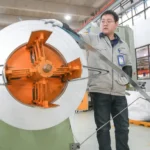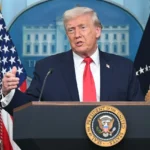Table of Contents
In the global arena, soft power has become a crucial tool for nations seeking to expand their influence, especially in strategically important regions like Africa. Both the United States and China have been particularly active in utilizing soft power in Africa, with significant efforts focusing on cultural, educational, and media exchanges. This form of influence allows these nations to shape the future of African nations, especially in areas of trade, infrastructure, and diplomatic relations, all while avoiding the direct military or economic pressures that traditionally characterize hard power strategies.

Understanding Soft Power
Soft power is a concept coined by political scientist Joseph Nye, which refers to the ability of a country to persuade others to do what it wants without the use of force or coercion. Instead of military intervention or economic sanctions, soft power leverages culture, education, values, and diplomacy to build influence. For both the U.S. and China, this form of power has been particularly effective in Africa, where nations are looking for opportunities to modernize and grow their economies, as well as to improve their geopolitical standing.
China’s Strategy: The Belt and Road Initiative and Cultural Diplomacy
China has been a dominant force in Africa through its soft power initiatives, most notably through its Belt and Road Initiative (BRI), a massive infrastructure project aimed at enhancing global trade routes. Although primarily an economic tool, the BRI also serves as a key element of China’s cultural diplomacy. The initiative focuses on building railways, ports, highways, and telecommunications networks throughout Africa, which improves connectivity and facilitates trade.
But infrastructure is just one aspect of China’s soft power in Africa. Chinese language and cultural exchange programs have gained prominence in recent years. The establishment of Confucius Institutes across the continent is a testament to this effort. These institutes not only teach Mandarin but also promote Chinese culture, values, and history. The allure of China’s rapid economic growth and its model of state-led capitalism offers a compelling alternative to Western models, which many African leaders find appealing, especially in the context of their countries’ own development challenges.

The United States’ Approach: Educational and Cultural Diplomacy
The United States has also employed soft power in Africa, focusing on cultural diplomacy, educational exchanges, and development aid programs. One of the U.S.’s most successful programs is the Young African Leaders Initiative (YALI), launched by President Barack Obama in 2010. YALI aims to empower the next generation of African leaders through leadership training, fellowships, and professional development programs. Thousands of young Africans have benefitted from YALI, gaining exposure to American culture and values while also creating strong ties between the U.S. and Africa.
Furthermore, U.S. media and cultural exports continue to play a significant role in shaping perceptions of America across the African continent. Hollywood films, music, fashion, and technology have established American culture as a global brand, and Africa is no exception. U.S. entertainment companies, through movies and television shows, not only offer entertainment but also project the ideals of freedom, democracy, and individual rights—values that resonate with many African societies.

Trade and Infrastructure Development
Both the U.S. and China use trade and infrastructure development as key components of their soft power strategies. While China’s BRI provides the backbone for infrastructure development in Africa, the U.S. has its own initiatives, like the Power Africa program, which aims to increase electricity access across the continent. By addressing critical infrastructure gaps in energy, transportation, and communications, both countries are fostering goodwill and laying the groundwork for long-term trade relationships.
In terms of trade, China is Africa’s largest trading partner, with China’s exports and investments flooding into African countries. This includes not only infrastructure but also resources such as raw materials, mining rights, and agricultural products. China’s trade relationships are increasingly intertwined with African economies, making it an essential player in Africa’s future.
The U.S., on the other hand, has been an active proponent of free trade agreements and policies that encourage private-sector investments in Africa. Programs like the African Growth and Opportunity Act (AGOA) have enabled African countries to access U.S. markets with reduced tariffs, which encourages more trade and strengthens economic ties.

Media Influence and Public Perception
Media plays an important role in both countries’ soft power strategies. China, through outlets such as CGTN (China Global Television Network), is increasing its media presence in Africa, providing news coverage that often highlights China-Africa cooperation and China’s economic successes. This helps improve China’s image as a friendly, supportive partner in Africa’s development.
In contrast, the U.S. uses its global media influence to project American values and showcase successful American-African collaborations. American news outlets like Voice of America (VOA) and Radio Free Africa have dedicated programming for African audiences, promoting narratives of democracy, human rights, and economic opportunity.

The Strategic Implications for Africa’s Future
As the U.S. and China continue to deepen their soft power influence in Africa, the continent faces both opportunities and challenges. On one hand, these engagements provide African nations with the opportunity to benefit from significant infrastructure development, educational programs, and trade partnerships. However, there is also concern over the increasing dependency on foreign investments, particularly China’s growing dominance in key African economies, which could lead to debt challenges and a dependency on Chinese infrastructure.
Africa’s future, therefore, will depend on how it navigates these competing powers and their soft power efforts. African leaders will need to carefully weigh the benefits of China’s infrastructure investments against the potential for long-term debt traps, while also considering the U.S.’s emphasis on democracy and governance reforms.

Conclusion
In the geopolitical contest for influence, both China and the U.S. are increasingly using soft power as a strategic tool in Africa. By investing in education, infrastructure, and cultural exchange, both nations are shaping the future of Africa in ways that could have a lasting impact on the continent’s development trajectory. As the 21st century unfolds, the role of Africa as a global player will increasingly depend on how it leverages these relationships while maintaining its autonomy and sovereignty in the face of competing foreign interests.
Author Profile
- Syed Tahir Abbas is a Master's student at Southwest University, Chongqing, specializing in international relations and sustainable development. His research focuses on U.S.-China diplomacy, global geopolitics, and the role of education in shaping international policies. Syed has contributed to academic discussions on political dynamics, economic growth, and sustainable energy, aiming to offer fresh insights into global affairs.
Latest entries
 U.S. Foreign PolicyFebruary 2, 2026AI and Grand Strategy: The Case for Restraint – Navigating the Future of American Power
U.S. Foreign PolicyFebruary 2, 2026AI and Grand Strategy: The Case for Restraint – Navigating the Future of American Power National SecurityJanuary 31, 2026Treating China’s Connected Energy Systems as a National Security Risk
National SecurityJanuary 31, 2026Treating China’s Connected Energy Systems as a National Security Risk Global HealthJanuary 29, 2026The Future of the WHO—and How the United States Can Shape It
Global HealthJanuary 29, 2026The Future of the WHO—and How the United States Can Shape It Global TradeJanuary 22, 2026Trump Cancels Tariffs on European Nations Over Greenland Pursuit?
Global TradeJanuary 22, 2026Trump Cancels Tariffs on European Nations Over Greenland Pursuit?


11 comments
It’s hard to find knowledgeable people on this topic, but you sound like you know what you’re talking about! Thanks
After all, what a great site and informative posts, I will upload inbound link – bookmark this web site? Regards, Reader.
I truly appreciate this post. I have been looking everywhere for this! Thank goodness I found it on Bing. You’ve made my day! Thx again
Throughout this grand pattern of things you’ll secure an A+ with regard to hard work. Where you lost me personally was first on the facts. You know, as the maxim goes, the devil is in the details… And it couldn’t be much more accurate here. Having said that, let me tell you what did do the job. The authoring is actually incredibly engaging and this is most likely the reason why I am taking an effort in order to comment. I do not really make it a regular habit of doing that. 2nd, although I can certainly notice a jumps in reasoning you make, I am not necessarily convinced of exactly how you seem to unite your ideas which inturn help to make the actual conclusion. For right now I shall subscribe to your position but wish in the future you actually connect the facts much better.
You made some good points there. I looked on the internet for the topic and found most persons will consent with your site.
I’ve been absent for a while, but now I remember why I used to love this website. Thank you, I will try and check back more often. How frequently you update your website?
Youre so cool! I dont suppose Ive learn anything like this before. So nice to seek out someone with some authentic ideas on this subject. realy thank you for starting this up. this website is something that is wanted on the web, somebody with slightly originality. helpful job for bringing one thing new to the internet!
Thank you for the good writeup. It in fact was a amusement account it. Look advanced to more added agreeable from you! However, how could we communicate?
You are my inspiration , I possess few blogs and occasionally run out from to post .
Does your site have a contact page? I’m having trouble locating it but, I’d like to send you an email. I’ve got some recommendations for your blog you might be interested in hearing. Either way, great blog and I look forward to seeing it improve over time.
I know this if off topic but I’m looking into starting my own weblog and was wondering what all is needed to get setup? I’m assuming having a blog like yours would cost a pretty penny? I’m not very web savvy so I’m not 100 sure. Any tips or advice would be greatly appreciated. Many thanks